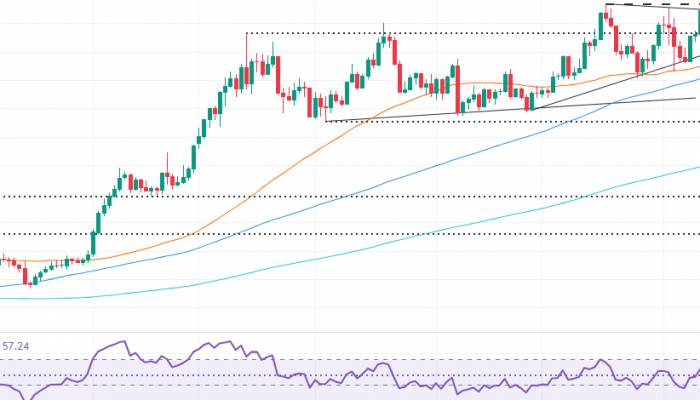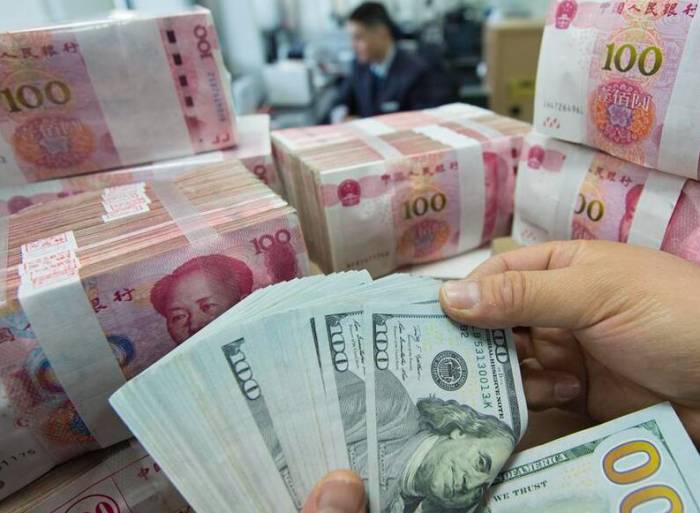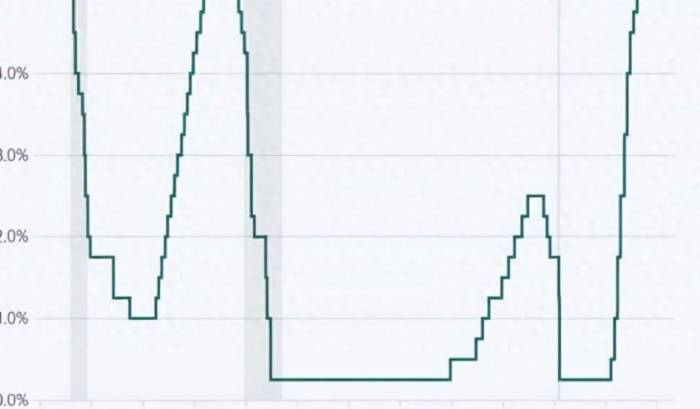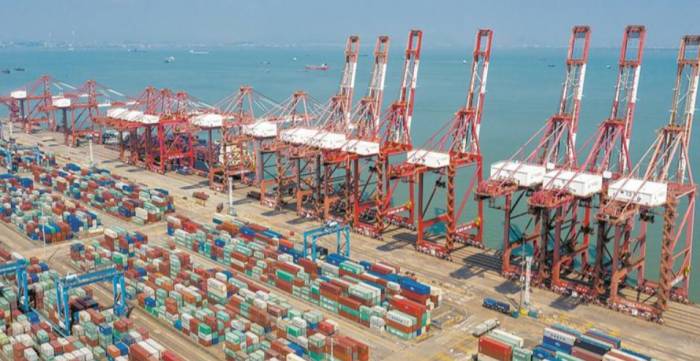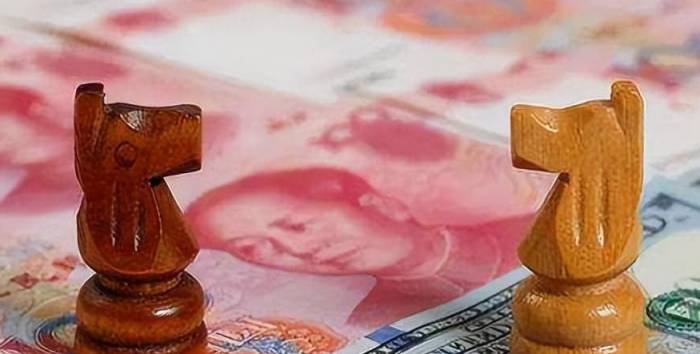The price of crude oil has always been a "target" of concern for everyone, after all, its increase determines the "pattern" of our refueling.
However, just a few days ago on September 4th, international oil prices plummeted to $70 per barrel, a level not seen in nine months.
Faced with the sudden drop in oil prices, one cannot help but wonder if this is a "conspiracy" specifically aimed at us by the United States?
As the saying goes, "one stone stirs up a thousand waves."
In the vast pond of the global energy market, the sharp drop in oil prices is undoubtedly the heavy bomb, not only disturbing the calm surface but also causing huge waves.
Some say it's the supply and demand relationship at work; indeed, the slowdown in global economic growth, especially China, a major energy consumer, has directly led to a decrease in crude oil demand.
However, attributing it solely to declining demand is too simplistic; we cannot ignore changes on the supply side.
The United States, once a major oil importer, has now become an oil exporter due to the shale oil revolution.
It's like a small town with only one noodle shop suddenly having a chain fast-food restaurant, and the noodle shop owner has to lower prices to retain customers.
This is the harsh reality of market competition.
In addition, geopolitical factors are indispensable, and it can even be said to be one of the most important reasons.
Changes in the Middle East situation are like adding more fuel to the boiling oil market, and some oil-producing countries are willing to adopt production expansion strategies to compete for market share, which undoubtedly exacerbates the oversupply situation.
However, the plummeting of crude oil is not the result of a single factor, just like a perfect magic performance, which requires the subtle cooperation of multiple factors.
The slowdown in global economic growth is undoubtedly one of them, but there are more behind-the-scenes drivers.
The strengthening of the US dollar is one of them.
It should be noted that international crude oil transactions are mainly priced in US dollars, and when the US dollar strengthens, buyers holding other currencies need to pay more to buy the same amount of crude oil, which will undoubtedly suppress demand and lower oil prices.
In addition, the flow of speculative capital also plays a certain role.
When investors smell the scent of economic recession, they will quickly withdraw from the crude oil futures market like frightened birds, and this large-scale capital outflow will undoubtedly put great pressure on oil prices.
So, what impact will the reduction in crude oil prices have on new energy?
On the surface, it seems to be a bearish message, after all, when traditional energy becomes cheaper, the attractiveness of new energy will naturally decrease.
Just like two adjacent stores, one suddenly drops prices, and the other's business will inevitably be affected.
The pressure faced by new energy vehicle companies can be imagined; in order to maintain competitiveness, they have to reduce prices to promote sales, which will undoubtedly further compress the already low profit margins.
However, things are not as simple as they seem on the surface.
As the global energy pattern undergoes drastic changes, China's new energy industry is surging forward, and this country once seen as a "latecomer" has now become the leader in the new energy industry.
Data does not lie, in 2023, China's new energy vehicle production and sales accounted for more than 60% of the global market share, ranking first in the world for many years in a row.
It can be seen that China's new energy vehicles have not only taken root domestically but also opened up overseas markets, thus achieving dazzling results.
It should be noted that the new energy industry is not just a single car market; it also includes many key links such as batteries, motors, and electric controls, and Chinese companies also occupy a pivotal position in these fields.
This technical advantage, coupled with a complete industrial chain advantage, gives China's new energy industry strong competitiveness.
Against the backdrop of the drastic change in the global energy pattern, Chinese companies are taking advantage of the situation and continuously expanding their market territory.
So, in the eyes of the United States, our rise has unexpectedly become their strongest "rival", so how to "deal with" us?
Controlling crude oil prices is a good method.
In this global energy revolution, the United States is undoubtedly an important role that cannot be ignored.
As the world's largest economy and energy-consuming country, every move of the United States affects the nerves of the global energy market.
Some people say that the United States may be the mastermind behind this drop in crude oil prices.
At first glance, this statement seems to have a bit of a conspiracy theory, but if we carefully analyze the strategic layout of the United States, we will find that this guess is not entirely unreasonable.
First, as the birthplace of the shale oil revolution, the United States' crude oil production has increased significantly in recent years, which is like a new big seller suddenly entering the market, and it will inevitably have an impact on the original market pattern.
The United States indirectly lowered international oil prices by increasing supply, which is a strategy that benefits the United States in many ways.
On the one hand, low oil prices can stimulate the domestic economy of the United States and reduce the burden on consumers; on the other hand, it can also suppress other oil-producing countries, especially some countries with poor relations with the United States.
However, the strategic layout of the United States is not limited to the traditional energy field.
In the new energy industry, the United States has also shown a strong strategic intention.
Especially in the face of the rapid rise of China's new energy industry, the attitude of the United States is worth our attention.
The Inflation Reduction Act introduced by the U.S. government is a good example.
This bill provides a large number of subsidies to support the development of the domestic new energy industry in the United States.
It's like giving a strong heart injection to the athletes in their own home, hoping to catch up in this new energy competition.
At the same time, the United States has also implemented a series of trade restrictions on China's new energy products, such as imposing high tariffs on Chinese photovoltaic products, which is undoubtedly setting obstacles for Chinese companies.
What is more alarming is that the United States is strengthening control over key mineral resources.
Everyone knows that the new energy industry cannot be separated from rare metals such as lithium, cobalt, and nickel.
The United States is increasing its reserves of these resources through various means, trying to reduce its dependence on China, which is like hoarding food in preparation for a possible "energy war."
However, whether the strategic layout of the United States can succeed is still a question mark, because the advantage of crude oil prices is difficult to maintain for a long time.
Oil prices are like a constantly swinging pendulum, and low prices cannot continue forever.
Once the global economy recovers and energy demand increases, oil prices will inevitably rebound, and then the advantages of new energy may re-emerge.
It's like when the tide goes out, you know who is swimming naked.
Only the truly capable companies and countries can stand invincible in this energy revolution.
So, how should the future of new energy be laid out more safely?
In the tide of this energy revolution, the new energy industry is undoubtedly a giant ship sailing against the wind and waves.
Although the sharp drop in crude oil prices has brought a great impact to it, we have reason to believe that new energy will not be defeated by crude oil.
Why do we say this?
First, new energy has become a global consensus to cope with climate change.
Just like a patient with a serious illness, the Earth needs clean energy to heal itself, and this global environmental protection demand provides a continuous driving force for the new energy industry.
Second, technological progress is continuously improving the economic viability of new energy.
The cost of batteries continues to decline, and charging efficiency is continuously increasing, which is like an athlete constantly breaking his own limits, and every progress makes him closer to the finish line.
In addition, the policy support of various governments for the new energy industry is increasing, which is like injecting a strong heart injection into the new energy industry, making it more confident in the competition with traditional energy.
Faced with the challenges brought by the decline in crude oil prices, new energy vehicle companies have not been passive.
They are actively adjusting their strategies and looking for new breakthroughs.
For China, how to maintain a leading position in the field of new energy is undoubtedly a major challenge.
We must be clear that there is still a certain gap between us and the world's advanced level in some core technology fields.
For example, the development and manufacturing of high-end chips is one of our shortcomings, and how to make up for this shortcoming will be the key to whether we can win in future competition.
China plays a crucial role in this transformation.
We are not only the main producers and consumers of new energy products but also an important force in new energy technology innovation.
Despite facing competitive pressure from countries such as the United States, we still maintain our own advantages.
The future energy pattern will inevitably be diversified, and new energy and traditional energy will coexist and complement each other for a long time.
In this process, whoever can better grasp the pulse of technological innovation will be able to occupy a dominant position in the future energy market.
For China, we must adhere to the path of independent innovation and at the same time maintain an open and cooperative attitude.
We believe that in the future, China's new energy development will be better and better, and make everyone convinced.




